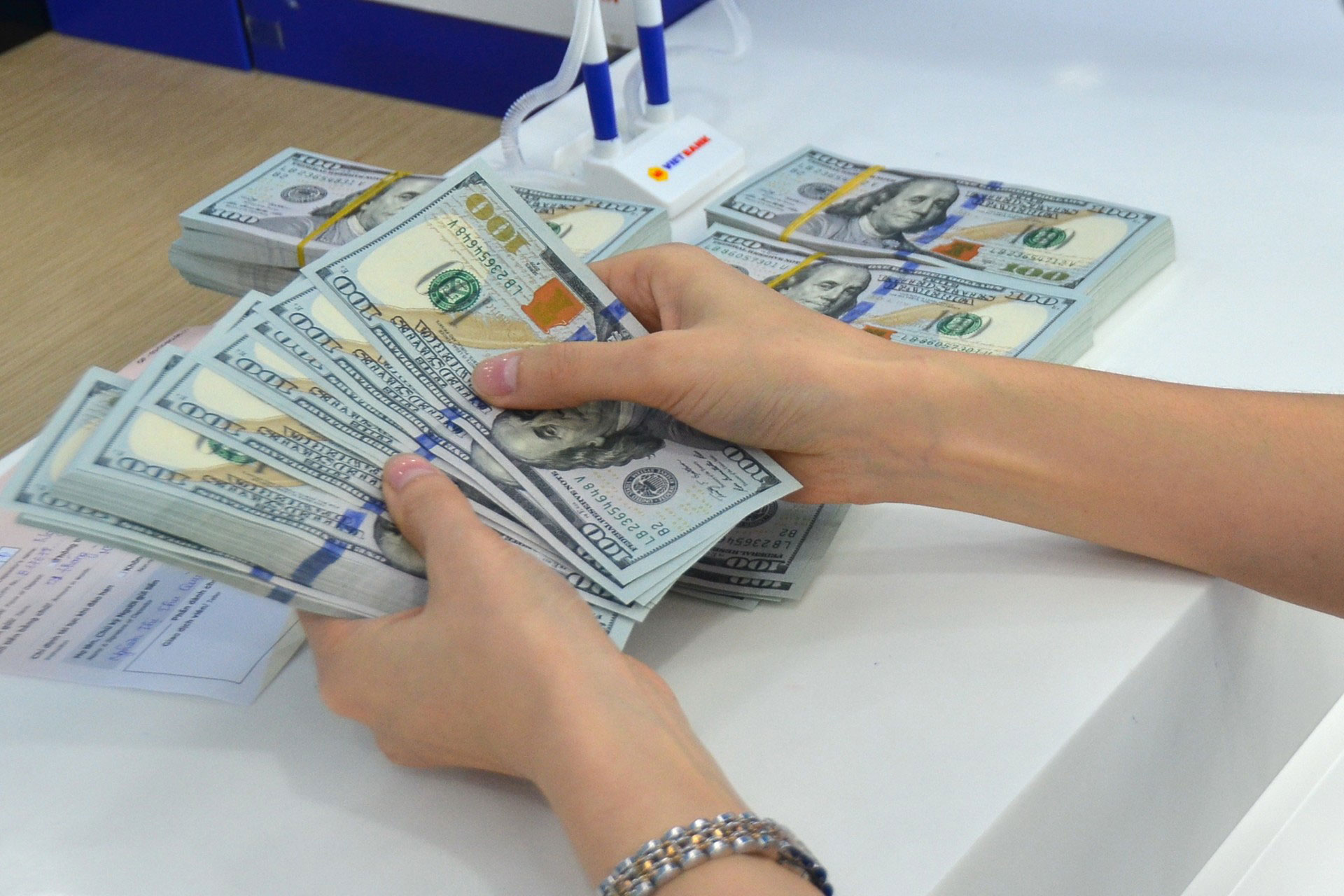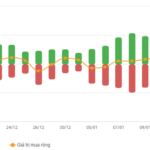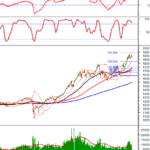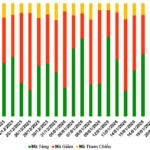On April 23, the State Bank of Vietnam (SBV) again raised the central exchange rate by 3 dong, to 24,275 dong / USD. Since the beginning of the year, the central exchange rate has increased by more than 400 dong. The USD price at commercial banks also continued to increase by about 25,178 – 25,488 dong/USD (purchase – sale), an increase of 3 dong compared to the previous day. The rate increase against the beginning of the year is now close to 5 percent, which is considered intense compared to previous years.
Impact on Exports and Commodity Prices
In a context where exports were recovering and the demand for importing goods and raw materials was rising to meet the needs of export production, the increase in exchange rates has direct effects on both exporting and importing enterprises (DN), especially DNs dependent on imported raw materials. Meanwhile, raw material prices remain high and tend to rise again; international transport is congested and expensive… which has impacted the competitiveness of Vietnamese commodities.
Mr. Pham Van Viet, Chairman of the Board of Directors of Viet Thang Jean Company (VitaJean), said that in recent days the price of textile raw materials in the US market has fluctuated continuously due to the impact of the USD exchange rate and geopolitical conflicts in the Middle East. As to the exchange rate issue, although VitaJean imports raw materials and exports in USD, the difference between buying and selling USD still causes the DN a loss of profit.
“At VitaJean, imported raw materials account for 40 percent; shipping contracts are also signed in USD. So, the exchange rate increase, while the cost of international shipping has skyrocketed by 3-4 times compared to before, noticeably affects exports”, Mr Viet said of the difficulties.

The rising exchange rate since the beginning of the year has had a significant impact on businesses and the economy Photo: TAN THANH
A representative of a retail DN in Ho Chi Minh City said the exchange rate increase not only directly affects DNs involved in import and export but also indirectly raises the production and business costs of many industries. In the first four months of the year 2024, DNs manufacturing consumer goods that use imported materials have proposed a price increase due to an increase in input costs. Even so, many DNs are enduring and waiting for the exchange rate to cool down.
Mr. Truong Chi Thien, General Director of Vinh Thanh Dat Food Corporation (specializing in poultry eggs), said that purchasing power in the market is still very weak, so the DN has not yet been able to adjust product prices in accordance with the exchange rate. “The DN has to cut profits to struggle through a little longer in order to see how the situation develops then decide what to do next,” he said.
Building Confidence in VND
Associate Professor and Dr. Nguyen Huu Huan, Ho Chi Minh City University of Economics, asserted that continuous exchange rate pressure will affect inflation control and macroeconomic stability.
“DNs exporting non-essential commodities or those facing much competition will also find it difficult to raise prices in line with exchange rate fluctuations. In the case of textiles and footwear, DNs find it difficult to raise export order prices while their input costs for imported materials have increased,” Associate Professor and Dr. Huan commented.
Not to mention, an increasing exchange rate will put pressure on interest rates. When the interest rate of the VND and USD are no longer different, foreign investors will withdraw their net income and in fact foreign investors have been net sellers on the stock market for the last few months. The reason is that if interest rates in Vietnam and the US are the same, investors will prioritize transferring capital back to the US to avoid the exchange rate risk.
According to Mr. Pham Chi Quang, Director of the Monetary Policy Department of the SBV, the exchange rate has risen mainly because the USD index in the world has risen rapidly in the first months of the year, putting pressure on other currencies, including the VND.
In this context, the SBV has been closely following the exchange rate of the VND and other currencies in the world in order to take measures to ease pressure on the foreign exchange market. Specifically, the SBV has withdrawn excess money through the issuance of treasury notes, thus reducing exchange rate pressure and ensuring fluctuations are within permissible limits and do not put pressure on the exchange rate.
“In recent days, exchange rate pressure has increased due to the very high demand to buy foreign currency in the economy and the rapid increase in imports. This is a good sign in the economic recovery process but it also puts pressure on the exchange rate. In order to hedge risks, a notable trend this year has been for DNs to increase buying foreign currency terms, which has also put further pressure on the exchange rate,” Mr. Pham Chi Quang assessed.
Speaking to a correspondent from the Nguoi Lao Dong newspaper, Dr. Nguyen Tri Hieu, banking financial expert, assessed that the exchange rate will continue to rise from now until the end of the year because the USD is getting stronger; geopolitical tensions in the Middle East mean investors and the market see the USD as a “safe haven”. In the domestic market, investment channels have not been positive, such as strong fluctuations in stocks, the gold market is still “hot”, deposit interest rates remain at rock bottom… meaning that the economy has not yet recovered strongly enough to make the VND stronger.
“Intervening in the exchange rate by selling foreign currency on the market needs to be done cautiously because this is a double-edged sword in a context where Vietnam’s foreign exchange reserves are at the level of about 3 months of imports – a safe level. Therefore, the sustainable solution for the exchange rate has to be that the economy is stable and strongly recovering, increased confidence in the VND will help the domestic currency recover,” Dr. Nguyen Tri Hieu observed.















